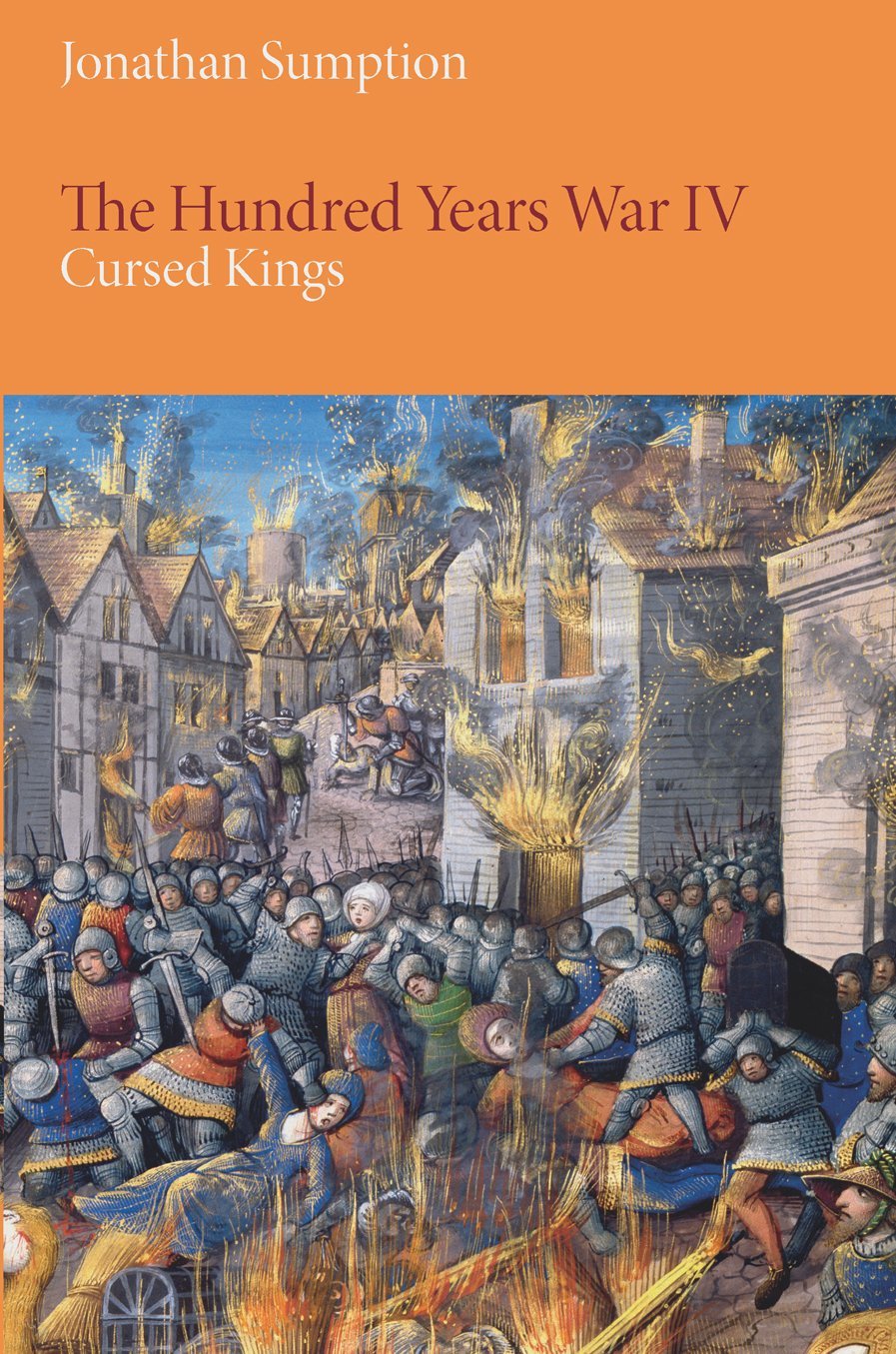Cursed Kings
 The fourth book of the excellent Hundred Years War series by Jonathan Sumption picks up in 1400, with a visit by Byzantine Emperor Manuel II to Paris. This echoes the start of the first book with the funeral procession of Charles IV; both are used to set the scene and show the current physical state of Paris.
The fourth book of the excellent Hundred Years War series by Jonathan Sumption picks up in 1400, with a visit by Byzantine Emperor Manuel II to Paris. This echoes the start of the first book with the funeral procession of Charles IV; both are used to set the scene and show the current physical state of Paris.
Past that, the start of the book feels much like the third one. There is a slow grind of positional warfare as peace talks and truces continue. Extra tension has been caused by the accession of Henry IV, who the French refuse to see as the rightful king of England. In fact, the cash-strapped nature of the war gets much more acute in England as rebellion flares up in Wales, troubles on the Scottish border rise, there is internal trouble, and Henry IV needs to make grants to various nobles to shore up his own support. This leaves England nearly completely unable to prosecute the war, and barely able to defend important enclaves such as the Pale of Calais. About the only thing to go right is naval raiding in the Channel, which is stepped up by the French, but ends up with the English doing far more damage.
But all of this is increasingly sidelined by troubles in the French Court. Charles VI suffers continued “absences” where psychotic episodes leave him unable to govern, and governance devolves to his uncles, with the balance of power tilting towards his brother, Duke Louis of Orleans after the death of the first Duke of Burgundy. The fight over royal power and the money to be skimmed off of the French treasury turns more personal, with the assassination of the Duke of Orleans by the second Duke of Burgundy.
From this point, France is effectively in a state of civil war. However, it is easy for us to think of such things as clean political breaks, with declarations and articles making the political case for one side. And… that latter is generally true here with John of Burgundy issuing letters denouncing the extreme wastage of money, and using a broad platform tax reform for popular support. At the upper levels, it’s a lot murkier, as there’s no clean break in the political community, with elements of both sides looking for a moderate solution to how to distribute power.
And then the English are back. Henry V’s finances are much better than his father’s, and he is very much a ‘warrior king’, eagerly going on campaign in France in an attempt to enforce the terms of the Treaty of Bretigny, or something much like them. It is at first a failure, with the siege of one port wasting much of the large English army, and despite some hard marching, the English are outmaneuvered and forced into the most famous battle of the war: Agincourt.
Such a stunning against-the-odds victory pays dividends for Henry V, who manages to take most of Normandy, even as the French are still fighting themselves, and trying to figure out how to all fight the English instead. All hopes of this are destroyed with the assassination of John of Burgundy by the most hard-line elements of the opposing faction. The leadership of that faction has already changed some from time and attrition. French troubles in this period are made greater by going through a couple crown princes (Dauphins) in a couple of years.
And as things get worse, Henry V decides to go for it all, declaring himself the true King of France, and later marrying a daughter of Charles VI with a treaty that he’d inherit when Charles VI finally dies. Sumption spends a little time trying to unpack this. It is generally seen in a very nationalistic French light, but much of that rhetoric comes later. It’s much harder to tell what general opinion was at the time. Certainly, it did not break up the Armagnac/Orleanist faction, and doubtless made them dig in their heels in further determination to prosecute their side of the civil war.
The book ends in 1422, with deaths of Charles VI and Henry V. As ever in a conflict largely conceived of in feudal terms, deaths of prominent people mark a major change in the fortunes of war, and pretty much the entire rest of the cast has already changed out before we get here. The fifth and final volume of this series is due out soon, and it’s going to have to do a lot of heavy lifting to finish off the story. It will also just be heavy lifting. These books have grown from around 700 pages just about 1000, and I don’t think the last one will be any shorter.

Discussion ¬